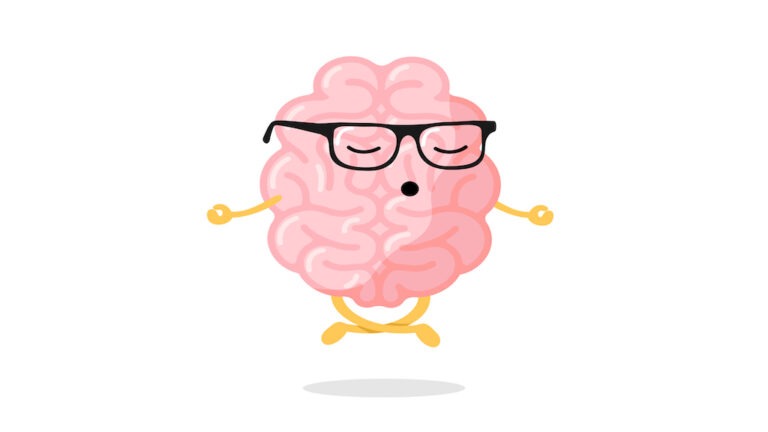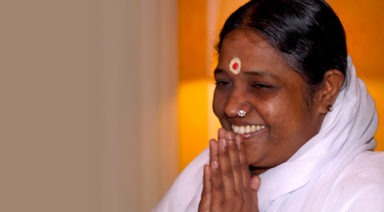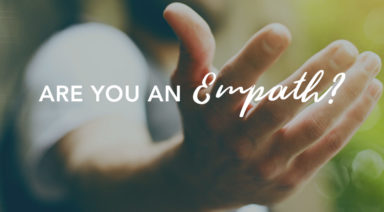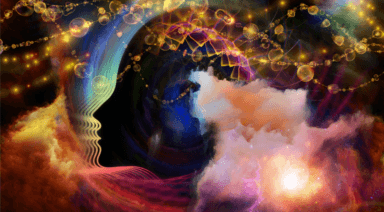How Does an HSP Cope With All the Suffering in the World?

If you’re not familiar with the term HSP, please see the definition for “Highly Sensitive Person” from Dr. Elaine Aron.
With no simple answer, I’m afraid. I’ve pondered my own answer to this question for several years. The following Meditation of Hope and Love came to me during one of my own meditations a few years ago. I use it often…and lately, that means almost daily!
A Meditation of Hope and Love
Find a meditation time – at least 30 minutes, or longer, if possible. You know the criteria – quiet, uninterrupted time and space, preferably your own special place that may have candles or a special feeling of comfort and security for you.
Sit or lie down in a very comfortable position. (I prefer lying, with something light and soft to cover me.)
- Begin slow, deep breathing, focusing on blowing all your breath out – as if blowing out a candle.
- Breathe in deeply, through your nose, to a count of 8 or 10. Hold for a count of four.
- Breathe out, again as if blowing out a candle, to a count of ten.
You want to create a very deep cleansing breath. Notice: You might begin yawning, or drifting off to sleep. Go with whatever feels best for you. There is no ‘doing it wrong’ here. Just keep practicing until eventually you can complete the whole meditation. Now here comes the harder, yet important part.
Begin to allow your mind to go ahead and focus on all the things you have been concerned or worrying about. Like many of you, I have been close to tears each day as I hear about all the suffering in the world.
Lovingly ask each individual concern to patiently wait in line — assuring them they will all have a chance to be heard. In your relaxed state, begin to see each entity forming a line, waiting patiently. As they come up to be heard, assign them a name like Robin Williams, Gaza/Palenstine conflict, Nigerian girls or maybe for you it might be lost job, finances, or whatever else evolves as an appropriate and loving way to remember and honor your concerns.
As an HSP, these kinds of images tend to burrow deep into my inner world and I can begin to feel burdened, lethargic, and sometimes hopeless. Cognitively, I know there is really nothing I can (concretely) do about these tragedies, yet my yearnings for a better world keep my mind occupied.
Now comes the next step in your meditation.
Discerning Feelings
Try and discern the feeling(s) associated with each worry…is it fear, anxiety, sadness, hopelessness, deep concern, or maybe anger, frustration, impatience, resentment, envy? Whatever it is just allow the feelings to be there alongside the worry…not going anywhere…no need to change…just to be…it is okay for this feeling to just be whatever it is.
After you have allowed each worry to surface, and to be heard with empathy, assure each worry and feeling (which should by now have a name to be remembered by) that they have been seen and heard, and that they will not be forgotten.
Thank yourself and your inner wisdom for allowing you this time, and for what you have been able to express openly. Slowly begin to bring yourself out of your relaxed state. Sometimes it is helpful to set a soft alarm of some sort if you need help with timing. After a while, it all just sort of comes naturally.
Now comes a very special part.
Record & Release
- Put on any music that will assist you in feeling grateful, thankful, or blessed. Or just put on any soothing, comforting music that you love. (Note: You will need several votive candles available for about $.25 in craft stores.)
- Have your journal nearby, and prepare your special place if you haven’t already. Begin to record who and what you encountered during your meditation.
- For each worry you have honored in your special way, you will now light a candle to commemorate your connection to it, the pain it feels, the struggle it is going through, and its hope for a better life. Allow your thoughts to embrace each concern for at least 90 seconds while you focus your attention on the candle’s glow and light.
- Imagine your concern being released to a higher source or power. Imagine the Universe waiting to embrace the essence of your concerns, hopes, and feelings. For some people, this ‘waiting embrace’ is God, to others it is a Universal source or abundance. It really doesn’t matter. What matters is that it is real for you whatever you care to call this relationship.
- Finally, once again, close your eyes; imagine the concern being received with acceptance, love, care. Release the worry, knowing it will be taken care of. Let it go. Let go and let God.
- Repeat this process as many times as needed, maybe daily if necessary.
P.S. If you should be one of the HSPs who watches the news, it’s a good idea to have your candles nearby for the 90 second remembrance. Commemorating, honoring, and releasing all the troubles in the world by this small ritual seems to help me feel I have done something for those suffering. It also helps me to remember to be thankful for what I have and to continue to develop and hold on to my faith and to radiate my hopes for a better world out to the Universe.
Open and Nurture Your Heart with Gaia’s Meditation Guide
Learn the art of mindfulness and loving kindness — the foundations for living with an open heart — in The Yogi’s Heart, a guide for opening and connecting. For it is only when you approach life from a place of openness can you embody connectedness with all things.
Can Mindfulness and a Psychology Class Make You Happier?

By studying the effects of mindfulness on psychiatric patients, and the pursuit of happiness, can we teach ourselves how to be happier?
The term mindfulness has entered popular culture in recent years, but this ancient Buddhist practice actually began gaining acceptance in western medicine in the 1970s.
The three main tenets of mindfulness are:
- Intention to cultivate awareness
- Attention to what is occurring in the present moment
- An attitude that is non-judgmental
In a recent article for psychiatric times, researchers looked at how mindfulness-based treatments work for psychiatric patients, and how these therapies can enhance and even replace pharmaceutical interventions. They found a wealth of evidence that mindfulness-based therapies have overwhelmingly positive effects on patients.
With mindfulness-based cognitive therapy reducing the rate of relapse rates for patients with major depression similar to that of pharmaceuticals, they also showed reduced anxiety, depression, and increased cognition.
The researchers point out, however, that, “Despite this evidence, pharmacotherapy remains the main treatment option for many patients with mental disorders, although about 75 percent of patients with mental disorders prefer psychotherapy. Researchers recommend implementing mindfulness-based therapies in place of, or in concert with, pharmacotherapy especially as the population grows older and cognitive issues become more common.





































